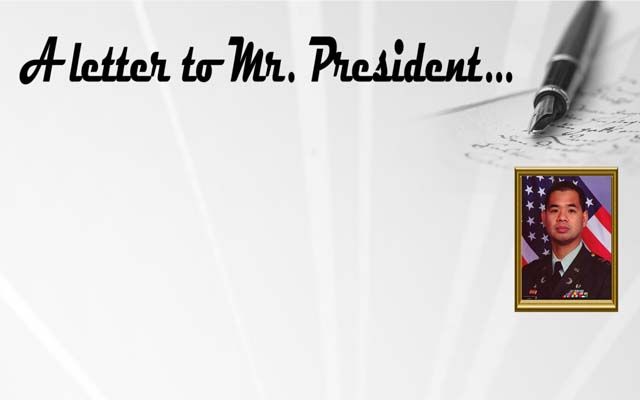In November 2010, Oklahoma voters approved an amendment to the state constitution expressly prohibiting Oklahoma state judges from considering international law or Sharia in their decisions. Munir Awad filed a complaint against the Oklahoma State Board of Elections challenging this, alleging that the anti-Sharia amendment to the Oklahoma Constitution, if certified, would violate the Establishment and Free Exercise Clauses of the First Amendment of the US Constitution. More specifically, Awad alleged that the amendment targets his religion for negative treatment and creates excessive state entanglement with religion. Stigmatizing him and other Muslims, Awad proffered, the amendment would inhibit the practice of his religion and would prevent a court from probating his Sharia-compliant last will and testament. The US District Court for the Western District of Oklahoma agreed with Awad, issuing a preliminary injunction against the certification of the amendment pending the litigant’s claims being adjudicated on the merits.
Last month, in Awad v. Ziriax, the US Court of Appeals for the Tenth Circuit affirmed the district court’s preliminary injunction but utilized a different constitutional scrutiny standard. The district court had evaluated the plaintiff’s claims under the Lemon v. Kurtzman guidelines. Lemon provides that the scrutinized legislation must have a secular purpose that primarily does not inhibit or advance religion and does not foster excessive government entanglement with religion. The Tenth Circuit reached the same conclusion but evaluated the plaintiff’s claims under the more stringent standard enunciated in Larson v. Valente. Larson held that the three prong test from Lemon was appropriate in cases where religion benefited at the expense of non-religious citizens. However, when one religion is preferred over another, a strict scrutiny evaluation is required (i.e., a legislation that discriminates among religions is valid only if it is “closely fitted to the furtherance of any compelling interest”).
The Tenth Circuit, in its ruling on Awad v. Ziriax, held that Oklahoma’s “one sentence” stating that “Oklahoma certainly has a compelling interest in determining what law is applied in Oklahoma courts” failed to “identify any actual problem the challenged amendment seeks to solve.” Without “any concrete problem, any harm Appellants seek to remedy with the proposed amendment is speculative at best and cannot support a compelling interest.” Without a compelling interest, the Tenth Circuit concluded it was not necessary to proceed to the “closely fitted” prong of the strict scrutiny test. The Oklahoma amendment was deemed unconstitutional. Be that as it may, the Tenth Circuit made several interesting observations about the closely fitted prong. “Even if the state could identify and support a reason to single out and restrict Sharia law,” the Tenth Circuit hypothecated, the amendment is not “closely fitted” as its “complete ban of Sharia law is hardly an exercise of narrow tailoring.”
The anti-Sharia movement seeking to legislate its political agenda is directly at odds with a basic principle laid out by the Supreme Court in Larson v. Valente: “the clearest command of the Establishment Clause” that mandates “governmental neutrality between religion and religion … The State may not adopt programs or practices … which aid or oppose any religion … This prohibition is absolute.”
So, what is Sharia after all? After briefly describing Sharia, I will use several examples to illustrate the role of Sharia or any religious and/or foreign law for that matter, in a US court.
Sharia is more than simply “law” in the prescriptive sense; it is also the methodology through which a jurist engages the foundational religious texts (Qur’an and Sunnah) to search for an understanding of, and compliance with, divine will. As a jurist-made law, the outcome of this process of ascertaining divine will is called fiqh (positive law), which is the moral and legal anchor of a Muslim’s total existence. Everything from the way Muslims eat, to how they treat animals and protect the environment, how they conduct commercial trade, solemnize their marriage, or distribute their estate at death — all is governed by Sharia, dictating every aspect of an observant Muslim’s practical and moral life. Therefore, Sharia is extremely personal to the majority of Muslims regardless of their level of religiosity.
Of course, this type of relationship with religion applies to most devout Christians, Jews, Hindus, and others, for religious principles and laws are very personal to all religious Americans. Whether it is Jews submitting to the jurisdiction of Rabbinic courts, Christians submitting to Christian Conciliation tribunals, or US political activists advocating a religious position on abortion, capital punishment, sex education, same-sex marriage and many other issues, religion and religious law have been alive and thriving in the US since its founding. Of course, the role of religious law or religious principles in the US court system continues to be subject to public policy and constitutional constraints. In the end, however, the US Constitution is the law of the land.
The modern manifestations of Sharia are either a source of legislation or actual nation-state law in the majority of Muslim countries. Sharia is the supreme law of the land in Saudi Arabia. Islamic law is a primary source of the family law codes of Egypt, Jordan, the United Arab Emirates, Qatar and many other Muslim countries, and Sharia is the gap filler in almost all of the civil codes of Muslim countries.
The globalization of domiciles, marriages, divorces, corporations and commercial transactions requires US courts to regularly interpret and apply foreign law — including Islamic law — to everything from the recognition of foreign divorces and custody decrees, the validity of marriages, the enforcement of money judgments or the damage elements in commercial disputes or negligence matters.
Sharia is relevant in a US court either as a foreign law or as a source of information to understand the expectations of the parties in a dispute. As an attorney, consultant or expert witness I have handled more than 100 matters involving a component of Sharia or the laws of the Middle East. I will use several examples to explain the actual role Sharia or the laws of the Middle East play in litigation in the US.
Case #1: A, a New York resident, married B, a UK resident, in a European country. Their marriage was solemnized by a Muslim clergy. The parties live in both countries. They have one child together. B files for divorce in England. A counters, alleging that their marriage was not legal. Which jurisdiction governs the validity of the marriage and the place of the marriage, UK law or New York law? If New York law governs, the marriage would be valid as long as the marriage was valid under Sharia.
Case #2: A, an employee of a US corporation negligently caused the death of B in a country utilizing Sharia. The estate of B institutes an action against A in the US. Based on US conflicts of law, the law where the tort occurred would govern the dispute. The court would require expert testimony regarding the tort law of the country using Sharia, which would include issues relating to Sharia.
Case #3: A, a Saudi company, enters into a joint venture agreement with B, a US company. Their joint venture agreement provides that Saudi law would govern any disputes. A sues B in state court. State court applies Saudi law to the dispute. Saudi law is based on Sharia law. The primary issue of the dispute is then whether Sharia law provides for consequential damages.
Case #4: A and B are married. They have lived in New York for the past twenty years. A and B are originally from Jordan. While A and B are visiting Jordan, A divorces B. Upon return, A seeks to enforce the Jordanian divorce. The court must determine whether the Jordanian divorce should be recognized. In this circumstance, the state judge must determine whether the Jordanian divorce violated American public policy. As the wife was not a resident of Jordan, did not participate in the Jordanian proceeding, and since the majority of the marital assets are in New York, the court is more than likely to hold that the Jordanian divorce violates New York public policy.
The above examples illustrate Sharia as a foreign law. Sharia, then, is extremely relevant for US judges adjudicating matters within the strictures of our law. Of course, the US judge is applying US conflicts of law to determine the applicable law. In other words, even though the judge is applying a foreign law to the dispute, it is US law that dictates that he apply the foreign law.
Below are two examples of how Sharia is relevant to a US judge, not as a foreign law but as a source of information to understand the surrounding circumstances to an agreement or dispute or to clarify an ambiguity or correct a mistake.
Example #1: A, a New Jersey resident, married B, also a New Jersey resident. Both are Muslim. They had a Muslim Imam solemnize their marriage, which included execution of a Muslim marriage contract. Their Muslim marriage contract had a provision called Mahr, which directs the husband to pay the wife the sum of $20,000 in the event of divorce. The wife, A, filed for divorce in the New Jersey Superior Court, seeking the enforcement of the $20,000 payment. The court heard testimony about Muslim marriages, marriage contracts, the meaning of Mahr and related information surrounding the execution of the marriage contract. The judge then considers this information to better understand the expectations of the parties at the time of the marriage and applies New Jersey contract law. The judge enforces the Muslim marriage contract finding it satisfied all of the elements of New Jersey contract law.
Example #2: In a similar case B, the groom, at the wedding ceremony, for the first time, is asked to sign the marriage contract with the $20,000 stipulation. Embarrassed and pressured before 300 guests, the groom signed the document. In addition, the document was in Arabic, and he did not read or write Arabic. Several years later, the wife filed for divorce and asked for the $20,000. The New Jersey judge finds that there was no meeting of the minds because of the circumstances surrounding the execution of the document. In other words, the marriage contract between these parties did not satisfy all of the elements of a valid contract under New Jersey law.
In sum, most legal experts would agree with the Tenth Circuit’s conclusions in Awad v. Ziriax. Why then is there paranoia around the country? Why are warnings that Sharia threatens the constitutional system still raging and picking up steam? Almost every Republican presidential candidate has affirmed his opposition to the imaginary threat of Sharia. For attorneys and legal experts, the above examples are very simple and first-year law school material. These nuances, unique facts, and legal subtleties are absent from the discussion about Sharia in America. Their absence is not an innocent omission. It is intentional in order to fuel the misinformation and distortion about Islam and Muslims.
As attorneys, we have an obligation to correct the misunderstanding about the role of any foreign law in our system. It is always subject to the limits of the Constitution. That is the law of the land. The politicization of this issue is undermining the integrity of our judicial system and constitutional protections. US judges are equipped with the necessary legal tools to evaluate the legal and factual issues before them without the requirement of bright line rules, especially those that originate out of misinformation, distortion and outright discrimination.






